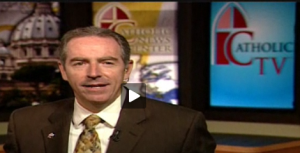 You may be familiar with classroom news podcasts like CNN’s Student News, but what you might not realize is that the Archdiocese of Boston produces a similar show each week for Catholics called Newsbreak. Each episode is around five minutes long, a perfect length for showing to students in grades 6-12. New episodes air twice weekly, on Tuesdays and Fridays, providing Catholic teachers with an excellent way to help their students keep on top of what’s happening in the Church.
You may be familiar with classroom news podcasts like CNN’s Student News, but what you might not realize is that the Archdiocese of Boston produces a similar show each week for Catholics called Newsbreak. Each episode is around five minutes long, a perfect length for showing to students in grades 6-12. New episodes air twice weekly, on Tuesdays and Fridays, providing Catholic teachers with an excellent way to help their students keep on top of what’s happening in the Church.
As the CatholicTV website explains,
Newsbreak is hosted by Kevin Nelson who researches and reports on Catholic news from all over the nation and the world. Videos are posted at CatholicTV.com each week and include video footage from Rome Reports, a news agency which specializes in coverage of the Pope and the Vatican.
News segments at CatholicTV.com focus on anything from violence in the Middle East, to charitable work, or even abortion. In its news pieces, CatholicTV also keeps viewers up to date on various calls to action from Catholic Bishops and the Pope through its privileged relationship with Centro Vaticano Television (CTV). CatholicTV receives video footage of Vatican and Papal events for Catholic Newsbreak from CTV.
Teachers can accesss Newsbreak in several ways:
- The show can be watched in your web browser by visiting CatholicTV.com
- Newsbreak is also available via video podcast through iTunes.
- There’s even a CatholicTV iPhone app that brings the latest episodes right to your phone, iPod Touch or iPad.
- Or, you can let Catholic School Chronicle make life easy for you. Just click on the “Launch the Player” button on the right sidebar of this page to bring up the CatholicTV video player, which gives you instant access to all of CatholicTV’s programming, including Newsbreak.
It’s extremely important that we Catholic educators keep up with current Catholic news. Ours is a living faith, not an ancient relic, and it is our responsibility to know what’s happening in Catholicism so we can share it with our students.
I like to make Friday’s Religion class come alive via multimedia, so I play the latest Newsbreak video, along with Lifeteen’s Sunday Sunday Sunday and Catholic Movie Review podcasts. Then we discuss some aspect of one or the other of the shows and connect it to whatever we’ve been studying in class that week.
I’d love to hear how you could use Newsbreak in your classroom. Why don’t you leave a comment below to share your ideas with other readers?
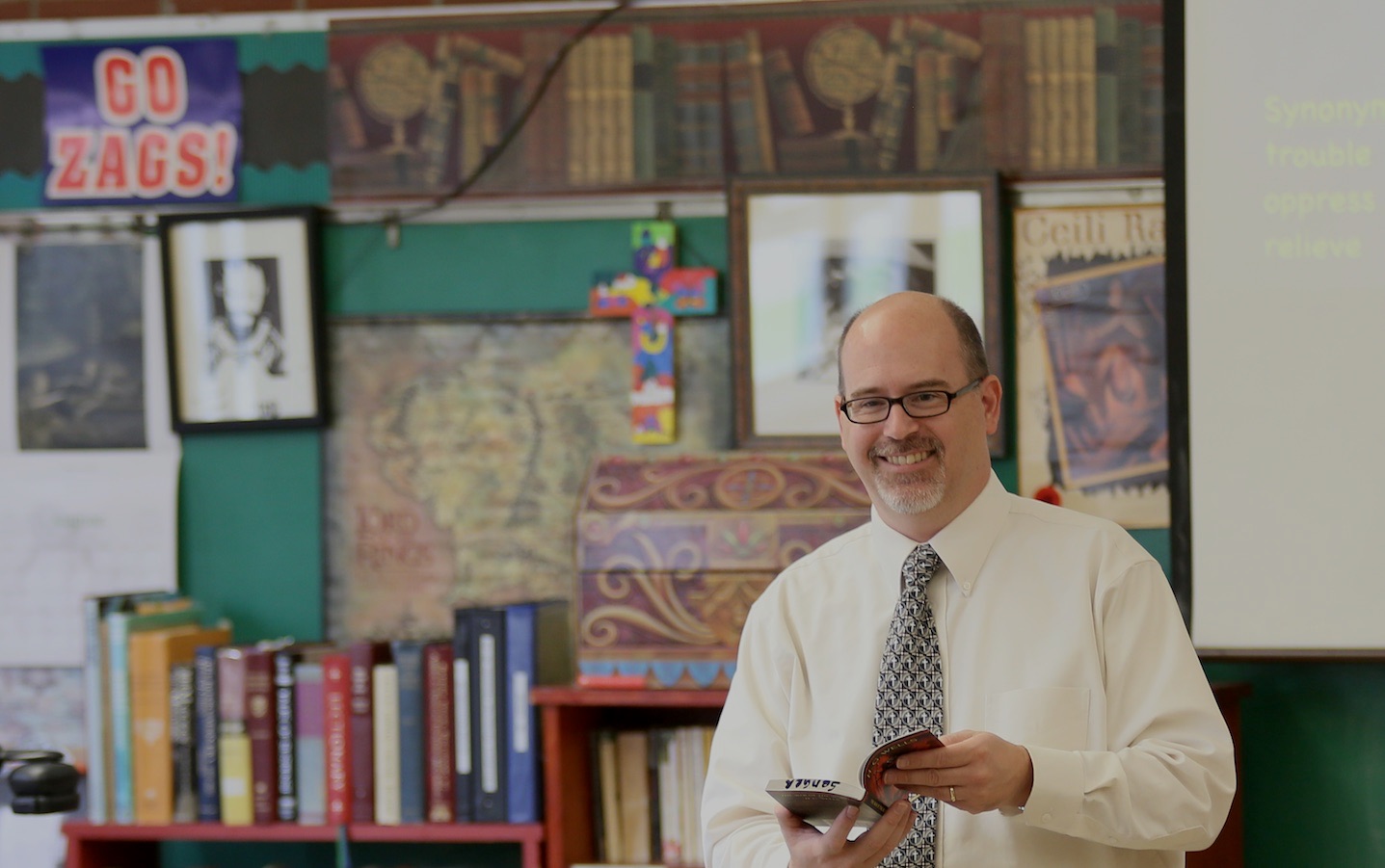
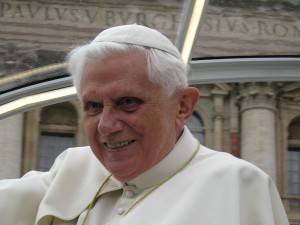 grasped by the monks who contributed so much to the evangelization of these islands. I am thinking of the Benedictines who accompanied Saint Augustine on his mission to England, of the disciples of Saint Columba who spread the faith across Scotland and Northern England, of Saint David and his companions in Wales. Since the search for God, which lies at the heart of the monastic vocation, requires active engagement with the means by which he makes himself known – his creation and his revealed word – it was only natural that the monastery should have a library and a school (cf. Address to representatives from the world of culture at the “Collège des Bernardins” in Paris, 12 September 2008). It was the monks’ dedication to learning as the path on which to encounter the Incarnate Word of God that was to lay the foundations of our Western culture and civilization.
grasped by the monks who contributed so much to the evangelization of these islands. I am thinking of the Benedictines who accompanied Saint Augustine on his mission to England, of the disciples of Saint Columba who spread the faith across Scotland and Northern England, of Saint David and his companions in Wales. Since the search for God, which lies at the heart of the monastic vocation, requires active engagement with the means by which he makes himself known – his creation and his revealed word – it was only natural that the monastery should have a library and a school (cf. Address to representatives from the world of culture at the “Collège des Bernardins” in Paris, 12 September 2008). It was the monks’ dedication to learning as the path on which to encounter the Incarnate Word of God that was to lay the foundations of our Western culture and civilization.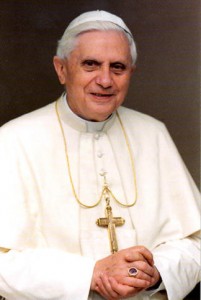 the choir and the band for the lovely music which began our celebration, and I thank Miss Bellot for her kind words on behalf of all the young people present. In view of London’s forthcoming Olympic Games, it has been a pleasure to inaugurate this Sports Foundation, named in honour of Pope John Paul II, and I pray that all who come here will give glory to God through their sporting activities, as well as bringing enjoyment to themselves and to others.
the choir and the band for the lovely music which began our celebration, and I thank Miss Bellot for her kind words on behalf of all the young people present. In view of London’s forthcoming Olympic Games, it has been a pleasure to inaugurate this Sports Foundation, named in honour of Pope John Paul II, and I pray that all who come here will give glory to God through their sporting activities, as well as bringing enjoyment to themselves and to others. On September 16, Pope Benedict XVI will make an apostolic journey to the United Kingdom, spending four days in England and Scotland. The Catholic Communication Network in London has put together a
On September 16, Pope Benedict XVI will make an apostolic journey to the United Kingdom, spending four days in England and Scotland. The Catholic Communication Network in London has put together a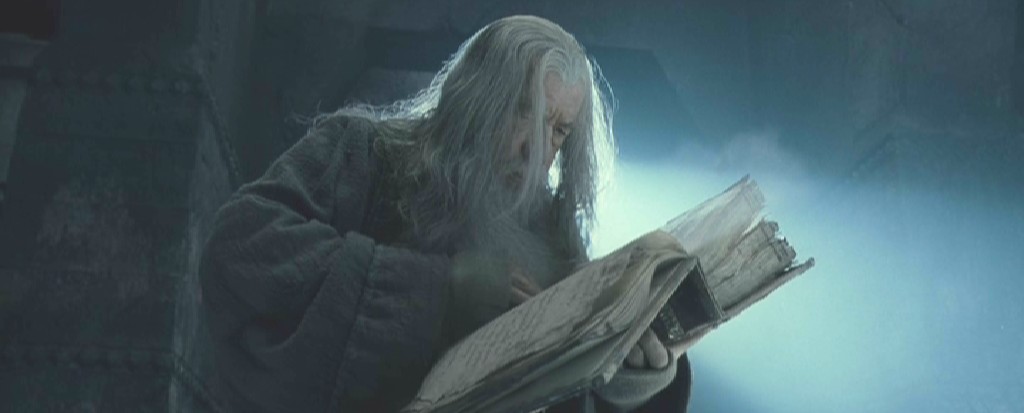
 Every hero journey has a mentor; wise teachers like Obi-Wan Kenobi and Dumbledore guide and aid the hero as he or she sets out on a quest of self-discovery and maturity. Your classroom is the proving ground for two dozen or so heroes each year–heroes who are on a journey every bit as important as Frodo’s in The Lord of the Rings. Your students are on a quest to discover their talents and gifts, and to learn how to place them at the service of Christ in order to do their part in bringing about the Kingdom of God. And just as Frodo had Gandalf to guide and mentor him, you are asked to guide and mentor your students. What can we learn from Gandalf’s example?
Every hero journey has a mentor; wise teachers like Obi-Wan Kenobi and Dumbledore guide and aid the hero as he or she sets out on a quest of self-discovery and maturity. Your classroom is the proving ground for two dozen or so heroes each year–heroes who are on a journey every bit as important as Frodo’s in The Lord of the Rings. Your students are on a quest to discover their talents and gifts, and to learn how to place them at the service of Christ in order to do their part in bringing about the Kingdom of God. And just as Frodo had Gandalf to guide and mentor him, you are asked to guide and mentor your students. What can we learn from Gandalf’s example? When Ryan Brink, a senior at Central Catholic High School in Toledo, Ohio, faced the prospect of losing his sight, he chose to adapt rather than quit. Ryan has retinitis pigmentosa and Stargardt’s disease, two conditions that will most likely lead to blindness. But, as the following
When Ryan Brink, a senior at Central Catholic High School in Toledo, Ohio, faced the prospect of losing his sight, he chose to adapt rather than quit. Ryan has retinitis pigmentosa and Stargardt’s disease, two conditions that will most likely lead to blindness. But, as the following